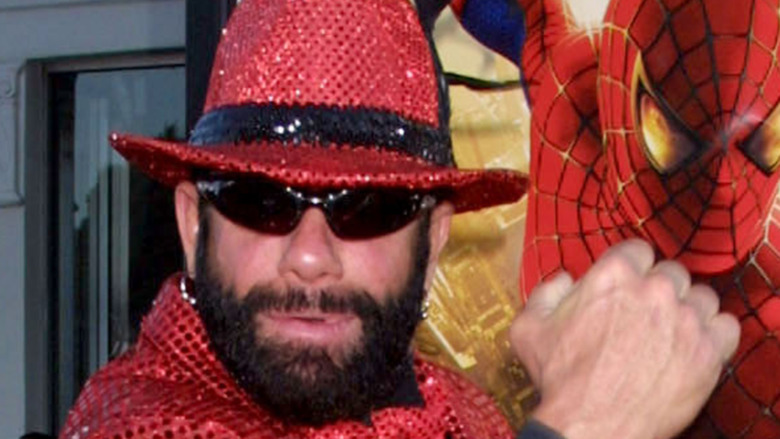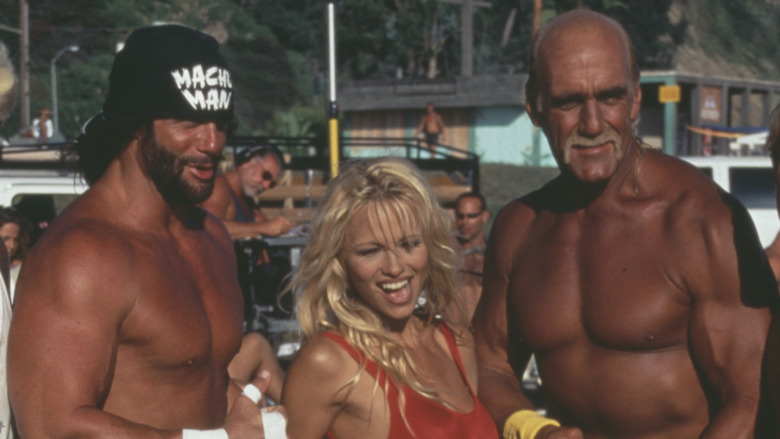This Is How Macho Man Randy Savage Got His Nickname
"Macho Man" Randy Savage was one of the most well-known and quintessential professional wrestlers of all time. After making a name for himself by launching International Championship Wrestling out of Lexington, Kentucky with his father and brother in the 1970s, he went on to join World Wrestling Entertainment in 1985 and became a beloved "heel" or villain with his "entering matches to the highbrow arrangements of 'Pomp and Circumstance,' his flamboyant costumes and his signature 'Oh yeah!' growl," per Biography. He often faced off against Hulk Hogan, although the two later joined forces as the "Mega Powers" tag team.
Born Randall Mario Poffo on November 15, 1952, in Columbus, Ohio, his father was professional wrestler Angelo Poffo. After a shoulder injury ended his plans to become a baseball player, Poffo, Jr. left the diamond for the ring in 1973. Originally using the stage name "The Spider," he became "Randy Savage" after a Georgia wrestling promoter, Ole Anderson, told him he needed a nickname that reflected his wrestling style — "savage." But where did the "Macho Man" portion of his name come from?
It's generally accepted that it was a suggestion from his mother, but the origin of her inspiration is slightly controversial. In a 2012 interview with IGN, when asked where "Macho Man" had come from, Savage replied that it was a suggestion from his mother, Judy, who "was reading Reader's Digest one day, long before the 'Macho Man' song came out, and they said in this article that 'Macho Man' was going to be the next hot term."
Savage's mom suggested 'Macho Man'
Macho is a Spanish word. The Oxford English Dictionary points to its use in a 1924 Christian Science Monitor article: "One of the most amusing of Latin-American epithets for the citizen of the United States, namely, 'macho', which means originally a male mule." It goes on to define "macho man" as "a man characterized by (esp. exaggeratedly) assertive masculinity" and quotes the term's use in a 1959 article in the journal Family & Population Control. This all proves that the term was around long before the song by the Village People, which entered the Billboard Hot 100 on June 24, 1978 and went on to peak at number 25 almost three months later.
But wait! According to Judy Poffo's 2017 obituary from the Tampa Bay Times, the Reader's Digest article didn't come before the song: "When Judy read an article in Reader's Digest predicting the song's title would become the next hot catch phrase, she suggested her son add it to his wrestling name." We may never know which truly came first.
Randy Savage died on May 20, 2011 of heart disease, per ESPN. He was 58 years old.
A&E's Biography will air an episode devoted to Savage on Sunday, April 25.

